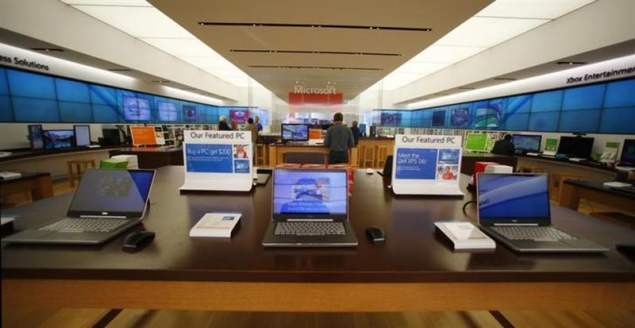- Home
- Internet
- Internet News
- Microsoft starts rolling out two step verification for accounts
Microsoft starts rolling out two-step verification for accounts

People who turn on the new feature will be asked not just for a username and password, but also a second piece of information, such as a temporary code sent as a text message to a phone on file. Google Inc. and Facebook Inc. already allow two-step verification as an option.
The security enhancements work with all Microsoft accounts, such as email addresses ending in Hotmail.com, MSN.com and Outlook.com. Those accounts unlock a range of Microsoft Corp. products, including email, Skype, SkyDrive storage, Xbox gaming, Office software subscriptions and Windows 8 machines.
Microsoft has no plans, however, to lift its current 16-character limit on passwords. Having a long password is one way to thwart hackers by making it harder to guess. In a statement, Microsoft says passwords are often compromised when people reuse them on multiple sites, respond to scam email messages or use machines that have malicious software. Longer passwords aren't helpful in those situations, the company says.
Two-step verification is one way to improve security without a longer password. Someone able to guess your password would still need physical access to your phone for the second code, for instance.
Microsoft already requires a second code for sensitive activities, such as editing credit card information. The new feature, available in the coming days, will allow people to require that for all tasks.
So if you're logging on from a new personal computer or mobile device, you'll be asked for that second code, sent to a phone number or an alternative email address on file. If you're offline and unable to get that second code, you can generate one using a Microsoft Authenticator app on Windows Phone devices. Those using iPhones or Android devices can install a third-party authenticator app compatible with Microsoft's system.
If you use a particular computer regularly, you can have that device remember that you're legitimate, so you're not asked for the second code again and again. But you may still have to provide one if you are switching Web browsers or if you haven't used that device for 60 days. If you lose a phone, you can revoke access remotely.
While two-step verification makes accounts safer, it requires more work to use and maintain, particularly if you change your phone number or the alternative email address. If you forget to update that information beforehand and you lose access to both, you'll need to go through a recovery process that comes a 30-day waiting period. The waiting period is to ensure that a hacker doesn't try to use it to take over your account.
For the latest tech news and reviews, follow Gadgets 360 on X, Facebook, WhatsApp, Threads and Google News. For the latest videos on gadgets and tech, subscribe to our YouTube channel. If you want to know everything about top influencers, follow our in-house Who'sThat360 on Instagram and YouTube.
Related Stories
- Amazon Great Indian Festival 2024
- Big Billion Days 2024
- Apple Vision Pro
- Oneplus 12
- iPhone 14
- Apple iPhone 15
- OnePlus Nord CE 3 Lite 5G
- iPhone 13
- Xiaomi 14 Pro
- Oppo Find N3
- Tecno Spark Go (2023)
- Realme V30
- Best Phones Under 25000
- Samsung Galaxy S24 Series
- Cryptocurrency
- iQoo 12
- Samsung Galaxy S24 Ultra
- Giottus
- Samsung Galaxy Z Flip 5
- Apple 'Scary Fast'
- Housefull 5
- GoPro Hero 12 Black Review
- Invincible Season 2
- JioGlass
- HD Ready TV
- Laptop Under 50000
- Smartwatch Under 10000
- Latest Mobile Phones
- Compare Phones
- Realme Note 60x
- Honor X9c Smart
- Realme V60 Pro
- iQOO Neo 10
- iQOO Neo 10 Pro
- Redmi K80 Pro
- Redmi K80
- Lava Yuva 4
- Asus Zenbook S 14
- MacBook Pro 16-inch (M4 Max, 2024)
- Huawei MatePad Pro 13.2
- Oppo Pad 3
- Redmi Watch 5
- Huawei Watch Ultimate Design
- Sony 65 Inches Ultra HD (4K) LED Smart TV (KD-65X74L)
- TCL 55 Inches Ultra HD (4K) LED Smart TV (55C61B)
- Sony PlayStation 5 Pro
- Sony PlayStation 5 Slim Digital Edition
- Blue Star 1.5 Ton 3 Star Inverter Split AC (IC318DNUHC)
- Blue Star 1.5 Ton 3 Star Inverter Split AC (IA318VKU)
















